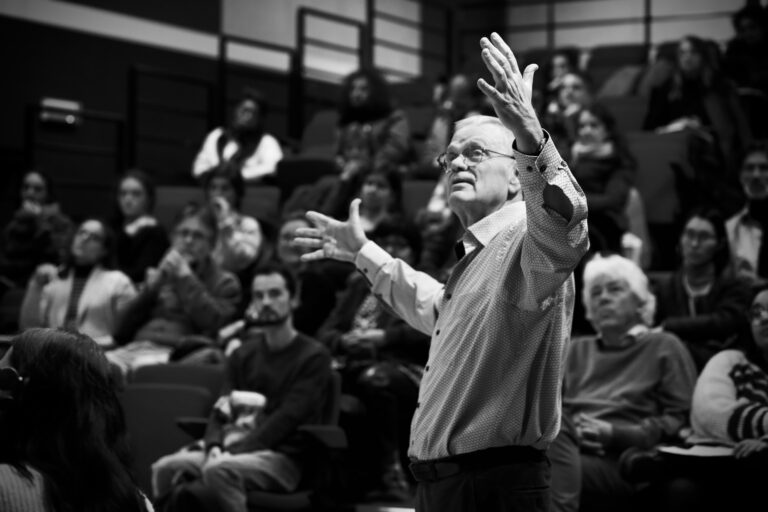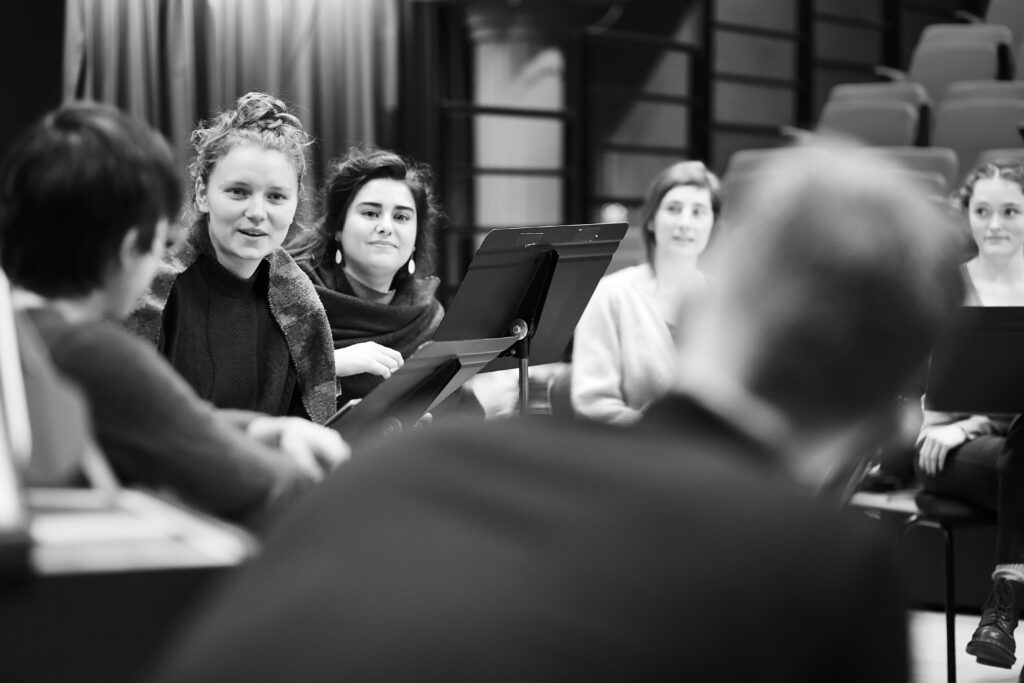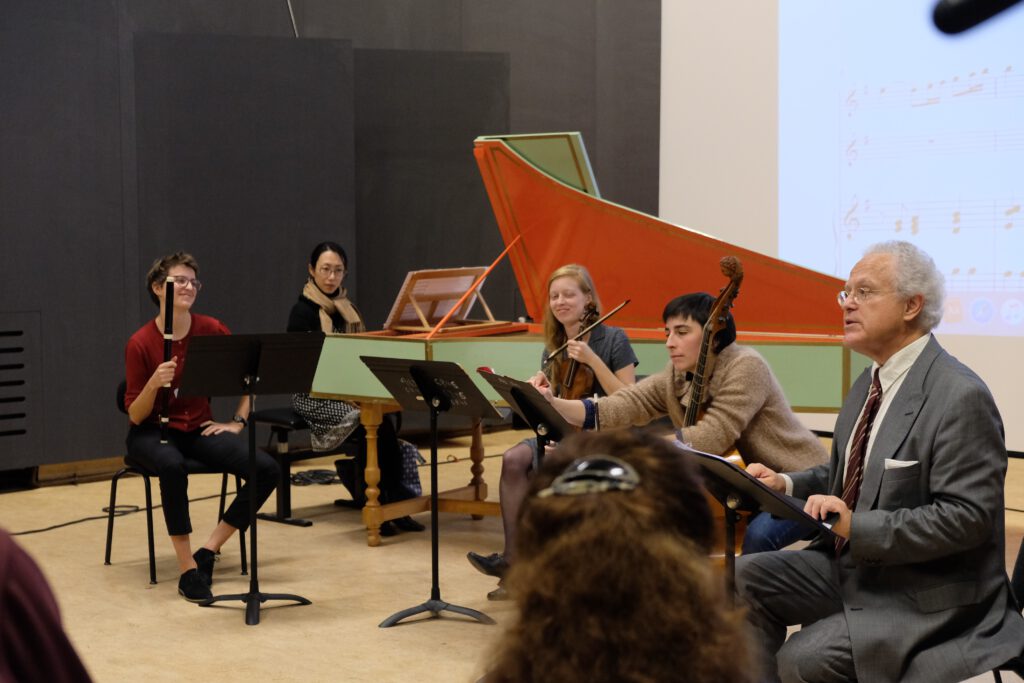The Department's annual symposium
The Department's annual symposium
The Early Music Department of the Royal Conservatory of Brussels has been organizing an annual research colloquium since 2010, led by Marc Vanscheeuwijck.
It is during this intensive week that the cohesion and vibrancy that characterize the department are most evident.
Since 2010, the CrB Early Music Department has been organizing an annual colloquium under the direction of Marc Vanscheeuwijck. It provides an ideal opportunity to bring together teachers and students for a whole week to discuss a common subject broad enough to encompass all the instruments and periods studied in the department.
This week of research is punctuated by plenary activities in the form of lectures, papers, and masterclasses, as well as closed-door sessions like class workshops, collective score readings, and external visits. The colloquium is often combined with a trip or an instrumental fair.
Through these colloquia, we aim to encourage research that will enhance historical practice by sharing knowledge. Held at the beginning of the academic year, these colloquia give color and coherence to the other events throughout the year.

Plenary sessions
Closed-door activities


